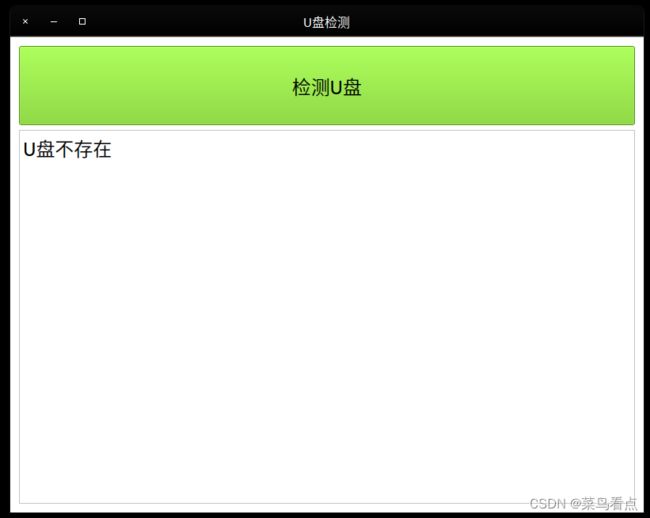U盘检测-linux+QT
目录
- 方法一:Liunx
-
- 11usb.cpp
- 效果
- 方法二:Liunx+QT
-
- udisk.cpp
- udisk.h
- ui
- 结构
- 效果
- 文件
- 参考
- 改进参考
注意:本人U盘已经使用
sudo mkfs.ntfs /dev/sdb1U盘分区格式化
方法一:Liunx
- 检测U盘是否存在
- 检测U盘自动挂载还是需要手动挂载
11usb.cpp
#include 效果
df -h
方法二:Liunx+QT
- 检测U盘是否存在
- 检测U盘自动挂载还是需要手动挂载
udisk.cpp
建议使用
QFileQStringQVector,由于时间成本因素,还是沿用上面的代码
#include "udisk.h"
#include "ui_udisk.h"
#include udisk.h
#ifndef UDISK_H
#define UDISK_H
#include ui
结构
效果
文件
有道云:U盘检测源码
参考
根目录定义|硬件设备在linux下的命名
利用/proc/scsi/usb-storage来判断 U盘的移入/移出
判断磁盘是否属于U盘
获取U盘挂载路径
C++ strtok函数详解|字符串分割
挂载U盘
改进参考
Linux下如何用QT检测到U盘已经插入
Linux c检测USB热插拔(netlink)







